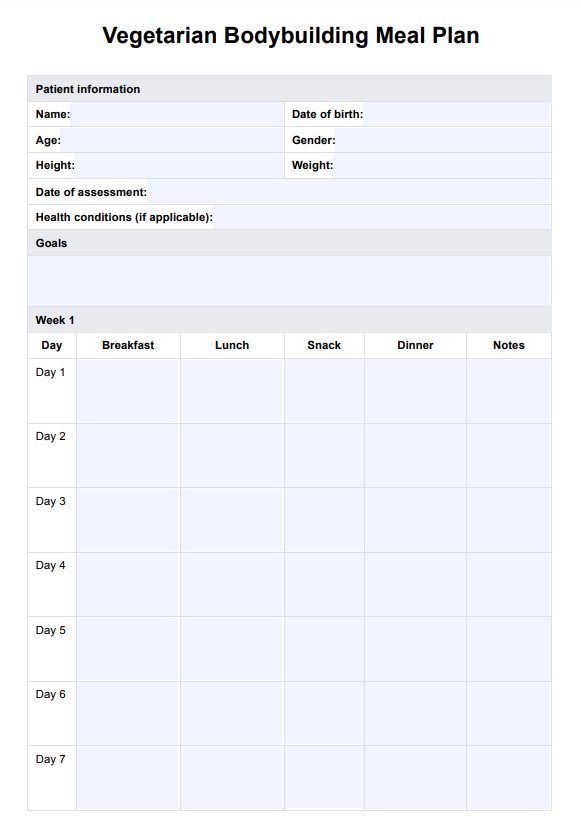Being a vegetarian bodybuilder presents unique challenges but is entirely feasible with careful dietary planning. Ensuring a balanced intake of proteins, carbohydrates, and fats from vegetarian sources is crucial to meeting bodybuilding nutritional needs.

Vegetarian Bodybuilding Meal Plan
Download Carepatron's free Vegetarian Bodybuilding Meal Plan PDF and help support patients with plant-based fitness and muscle growth.
Vegetarian Bodybuilding Meal Plan Template
Commonly asked questions
One of the main hurdles for vegetarian bodybuilders is obtaining enough protein from exclusively plant-based sources to support muscle growth and recovery. Additionally, ensuring that all essential amino acids are consumed requires more diverse food selections and careful meal planning.
Legumes, tofu, tempeh, seitan, quinoa, and nuts are excellent vegetarian foods for bodybuilding due to their high protein content and essential nutrients. Foods like spinach and sweet potatoes also support muscle function and energy levels, making them staples in a bodybuilder's diet.
EHR and practice management software
Get started for free
*No credit card required
Free
$0/usd
Unlimited clients
Telehealth
1GB of storage
Client portal text
Automated billing and online payments











